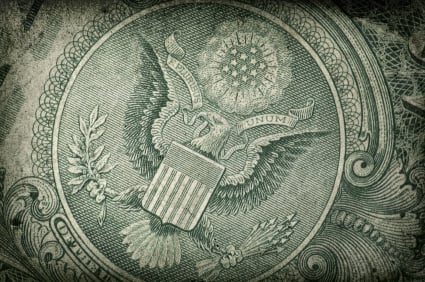Many are mistaking this euro weakness for dollar strength. A quick glance at the price of gold - which has made new highs in both currencies - quickly disproves this myth.
The following is an opinion piece written by Peter Schiff, president of Euro Pacific Capital and author of Crash Proof 2.0: How to Profit from the Economic Collapse. Mr. Schiff, a Republican, is also running for the U.S. Senate seat currently held by Banking Committee chair Christopher Dodd.
Last week, the European Central Bank abandoned all pretense that the euro would be the worthy heir of the Deutsche mark; based on the enormity of the nearly $1 trillion bailout of Greece and the moral hazard it creates for other spendthrift member-states, the euro is instead on its way to becoming the worthy heir of the drachma. While the bailout was intended to restore calm to the continent, thereby strengthening the euro, the result is a currency that has lost its shot at glory. Like Terry Malloy... it coulda been a contender.
Prior to this bailout, many investors - myself included - held to the belief that the German-led eurozone would be more fiscally responsible than countries whose governments have unilateral control over their own currencies. Given the decentralized political structure of the eurozone and the independence of the ECB, it was assumed that Western Europe would be unlikely, and perhaps unable, to inflate its way out of debt. As a result of this assumption, Europeans have enjoyed low interest rates and favorable exchange rates since the euro's introduction.
However, many member-states, Greece first among them, abused the borrowing privileges conferred by a strong currency and, to put it bluntly, bit off more than they could chew. Rather than allowing Greece to default, which would have put real teeth into Europe's previously untested commitment to fiscal responsibility, Europe proved it was all bark and no bite. The net effect has been to demonstrate that the ECB will monetize the debts of any member-state that has borrowed too much. As this understanding sinks in around the globe, the euro just sinks.
Unfortunately, many are mistaking this euro weakness for dollar strength. A quick glance at the price of gold - which has made new highs in both currencies - quickly disproves this myth. The fact is that both the dollar and the euro are losing value. At the moment, the euro is losing value faster; however, in the race to the bottom, my money is still on the dollar to win.
It is generally believed that the US government will never default on its debt, no matter how much red ink it generates nor how onerous servicing that debt might become. For now, the rest of the world seems content to buy our debt - despite the fact that they are paid next to nothing for the favor. To those who have raised concerns that foreign buying may someday cease, the Fed has clearly telegraphed its intention to print as much money as needed to buy up any debt that remains unsold. Under these conditions, those who now question the future validity of the euro without casting similar warnings on the dollar are employing a shameless double standard.
For all of its new faults, the euro remains more reliable than the dollar. Once the re-rating process is complete, and the euro finds a new floor, I expect the dollar to resume its relative slide against its transatlantic cousin. Meanwhile, I expect both currencies to continue to lose value relative to gold and other key currencies. Given the euro's damaged reputation, I expect pledges from European governments to rein in budget deficits and from the ECB to defend the value of its currency. While the long-term implementation of such commitments may prove lacking, a short-term rally in the euro should ensue - especially given the rapidity of its recent descent, and the overwhelming bearish sentiment against it. It is my intent to use such strength as an opportunity to re-evaluate our eurozone holdings.
While we have been underweight the euro for years, as I long saw the potential for this dire scenario, we may well decrease its weighting even further. If I am wrong about a near-term rally, and the euro continues in free fall, there is a risk that the eurozone will be redefined. Either the heavily indebted nations will be forced out, or a political revolt in the more fiscally responsible nations will end the bailouts, causing the indebted to pull out voluntarily. Either way, such a development might be a boon for investments in those nations that remain in a leaner eurozone, and possibly for those that exit to embrace fiscal responsibility on their own terms.
For now, the most interesting aspect of the Greek bailout has been President Obama's audacious lobbying in favor of it. He has become deeply involved in what is essentially an internal matter of the EU - demanding bailouts from Germany and lecturing Greece on fiscal responsibility. Aside from a penchant for irony, the President of the most indebted government on Earth is likely motivated by fear of a real-life sovereign default making headlines. By encouraging Europe to bail out holders of Greek and Portuguese debt, Obama hopes our creditors will sleep soundly as well.
Had Greece been allowed to restructure, bondholders would have been forced to absorb real losses from a developed country for the first time in recent memory. That would have accelerated the current debate on sovereign debt, and led some investors to reevaluate all of their holdings. The last thing Washington wants is for holders of Treasuries to start taking a critical eye to its balance sheet. Under such scrutiny, global creditors might correctly conclude that it's all Greek to them, and rerate our debt accordingly.







